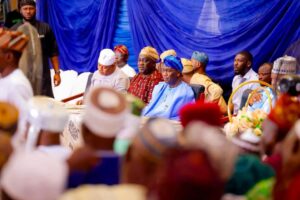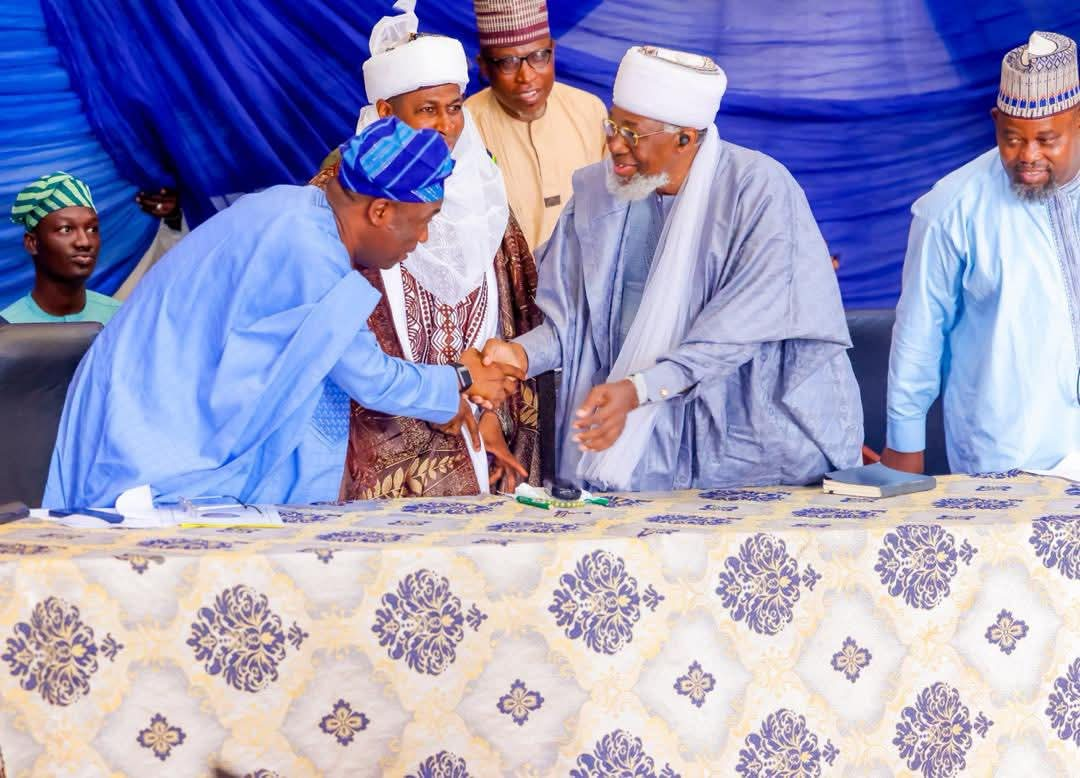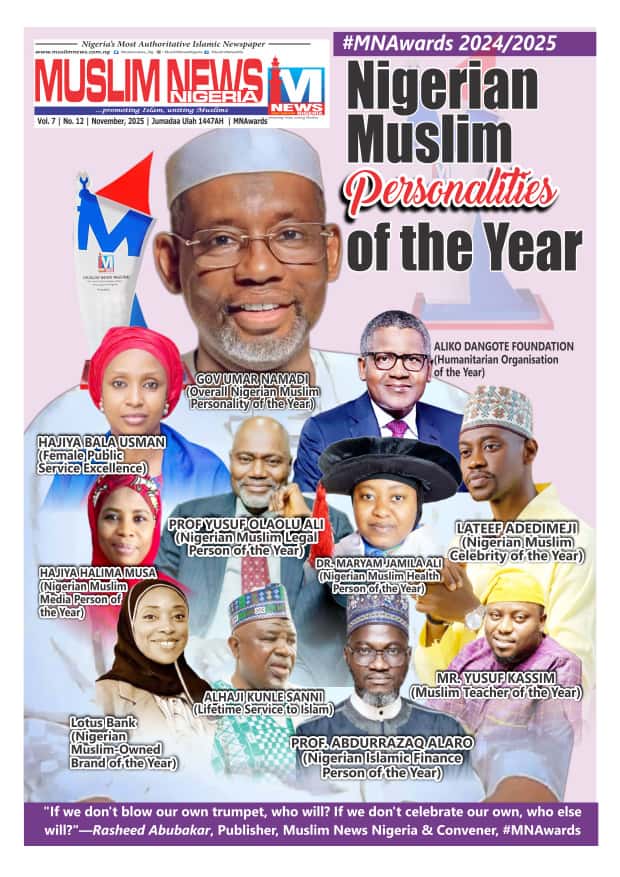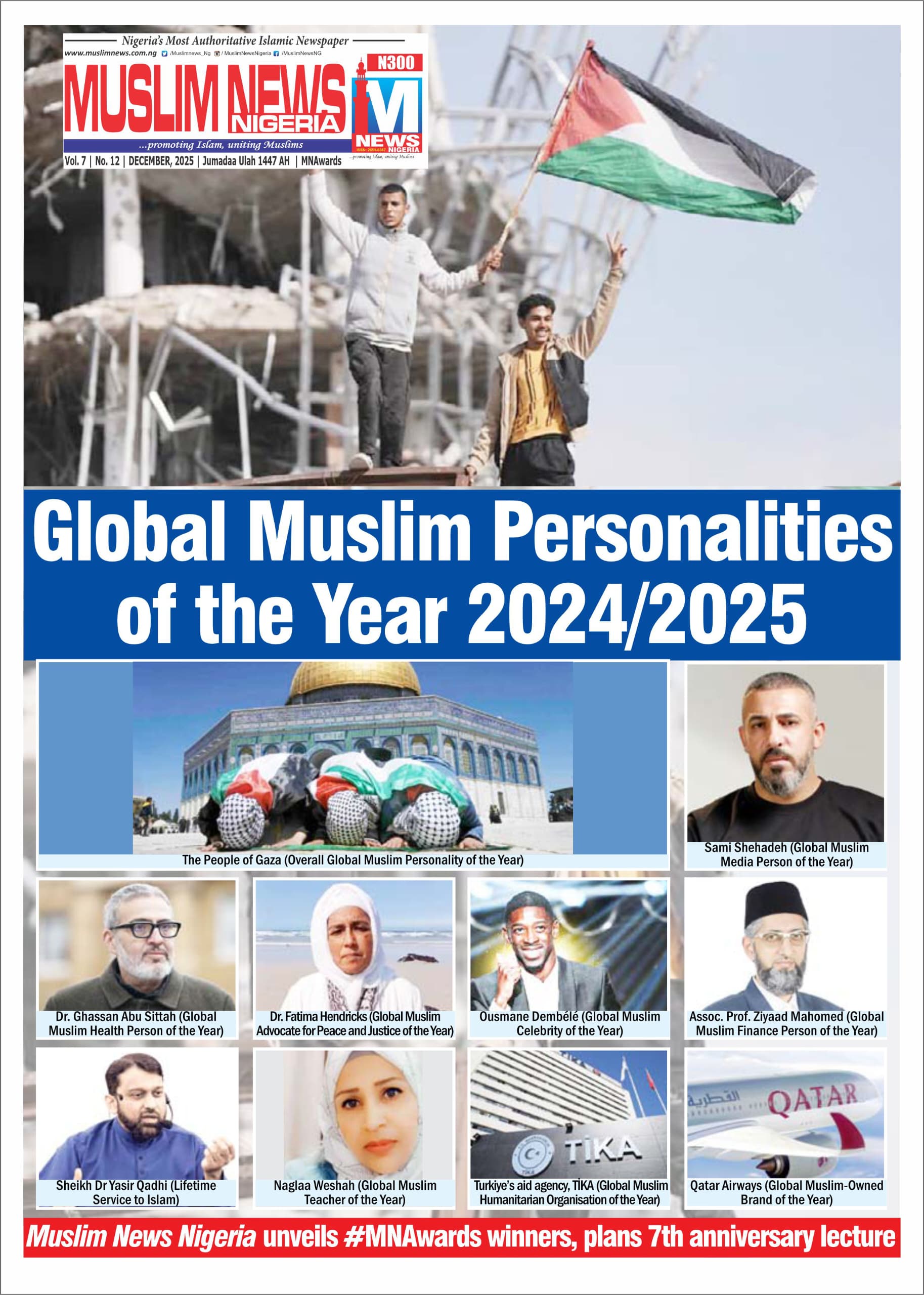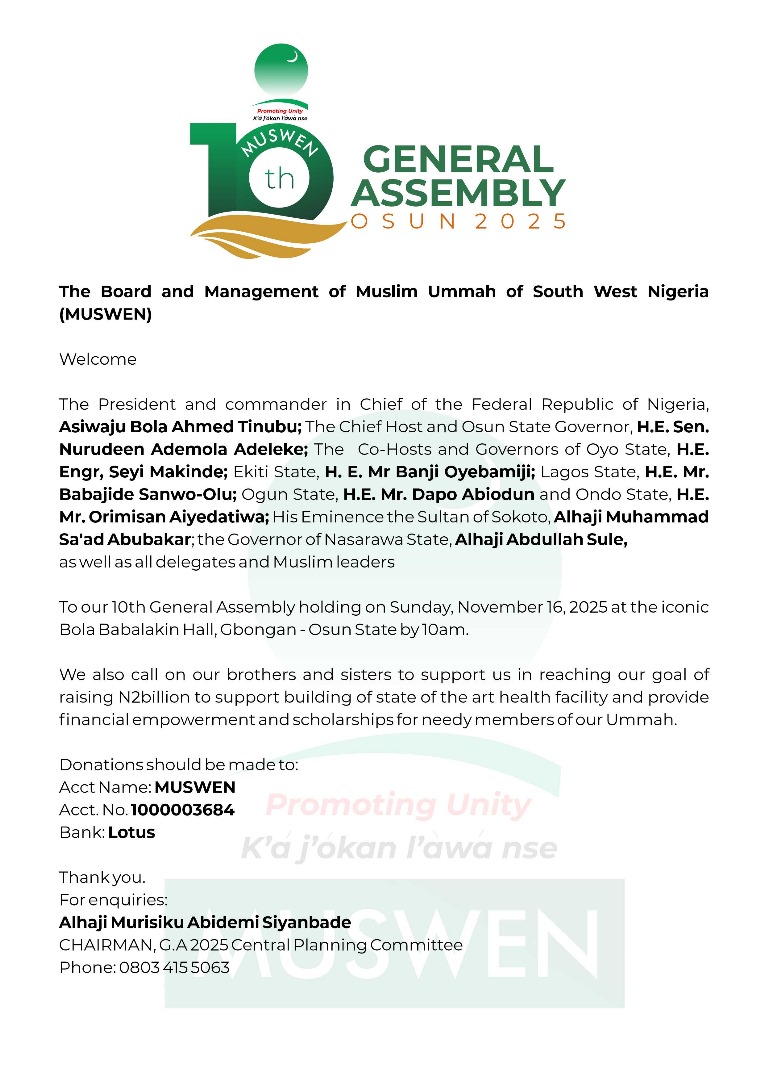* Seeks stronger government engagement with religious leaders
The National Missioner of Ansar-Ud-Deen Society of Nigeria, Sheikh Abdurrahman Ahmad, has urged the ruling party in Lagos State to promote justice and inclusivity by nominating a Muslim candidate for the 2027 governorship election.
He, however, added that the Muslim community would not hesitate to support candidates from other political parties if they field Muslim candidates, stressing that equity and fair representation must guide political decisions.
He made the call on Thursday, November 20, 2025, during the Capacity Training and Enhancement Workshop for Imams across Lagos State, organised by the Council of Imams and Ulamas, under the leadership of the Grand Chief Imam of Lagos, Sheikh Engr. Sulaimon Oluwatoyin Abu-Nola, in collaboration with the Ibile Muslim Community and Zakat and Sadaqat Foundation.
The workshop, held at the Lagos Central Mosque, attracted dignitaries including Hon. Dr. Jebe Abdullahi Ahmad, Special Adviser to the Governor of Islamic Affairs; Prof. Saheed Timehin from Lagos State University, LASU; Hon. Ibrahim Layode, the Commissioner for Home Affairs, and the Deputy Governor, Dr. Kadri Obafemi Hamzat, who delivered the keynote address.
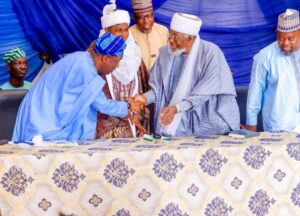
Sheikh Ahmad said the Lagos Muslim community has supported and voted for Christian candidates in the past, adding that, as such, justice, equity, and fairness demand that the party nominate a Muslim candidate for the upcoming 2027 general elections to ensure inclusiveness and balance.
Seeks stronger government engagement with religious leaders
Speaking at the event themed “Enhancing the Partnership of Spiritual Leaders and Government in Nation Building”, Sheikh Ahmad called for a more robust and consistent partnership between religious leaders and the government, emphasising the need for mutual respect and proactive engagement in policy-making.
The respected and eloquent Muslim scholar however stated that while religious leaders are essential partners in nation-building, they are often sidelined until crises arise.
According to him, “Religious leaders partner with the government in progress at all times. Hence, there must be strong reach and effective communication between the two parties to ensure optimum results. However, there are imbalances that need to be addressed for the good of all, and that’s all we’ve come here to address.
He noted that although the relationship between religious leaders and government remains cordial, it is no longer as effective or impactful as it once was.
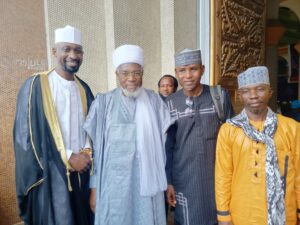
“Religious leaders are not treated as stakeholders. They are often consulted only when issues begin to degenerate, like emergency firefighters. That is not good enough.”
Sheikh Ahmad called for the involvement of religious leaders in policy formulation and evaluation, stressing that they should be consulted early in the process to interpret or advise on the viability of proposed policies.
He cited the hijab controversy and mosque demolitions as examples of sensitive issues that could have been better handled with the input of religious leaders, thereby preventing potential unrest.
Sanwo-Olu calls for stronger collaboration with religious leaders
The Lagos State Governor, Babajide Olusola Sanwo-Olu, stressed the importance of deeper collaboration between government and religious leaders, describing Alfas, Pastors, Imams, and Ulama as critical voices in shaping public understanding and promoting social stability.
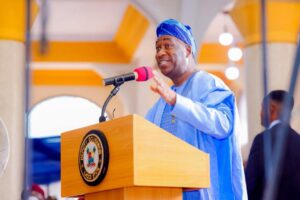
Represented by Deputy Governor, Governor Sanwo-Olu explained that messages delivered during sermons carry immense influence, and when faith leaders communicate government intentions clearly, public trust and understanding are strengthened.
He noted that coordinated engagement with religious leaders is essential in countering misinformation, improving civic awareness, and advancing developmental plans across communities.
The Governor also emphasized the need to preserve values among young people and strengthen platforms like the Nigerian Inter-Religious Council (NIREC) to enhance peaceful coexistence. Read more HERE
LASU Professor seeks ethical disagreement among Muslim scholars
Professor Saheed Timehin of Lagos State University (LASU), who was also one of the guest speakers, called on Muslim scholars and their followers to uphold the Islamic ethics of disagreement, especially in the age of social media where unhealthy exchanges are becoming rampant.
Prof. Timehin decried the growing trend of scholars attacking one another online, noting that debates often degenerate into personal insults rather than constructive discourse.
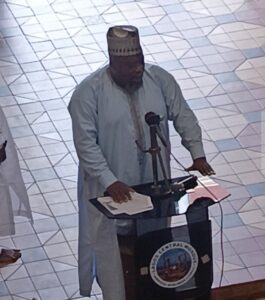
He said, “There is nothing wrong in disagreeing with someone’s opinion, but it must be done ethically. Disagreement should be based on truth, conducted with respect and decorum. Let it be clear that you’re addressing the issue, not attacking the individual.”
The varsity lecturer added that such un-Islamic behaviour not only disrespects the tradition of scholarly engagement but also encourages youth to ridicule and insult one another based on affiliations to particular scholars or schools of thought.
Prof. Timehin reminded participants that even the companions of the Prophet (SAW) and early scholars disagreed, but always with mutual respect and dignity. “You can disagree with me, but don’t destroy my humanity,” he concluded.
Police Imam decries poverty among Ulamah, links it to rising insecurity
CSP Raji Muhammad Jamiu who also serves as the Chief Imam of Zone 2 Police Command Lagos Nigeria raised concerns over the rising poverty levels among Muslim scholars, warning that the economic vulnerability of Imams is contributing to insecurity in communities.
CSP Muhammad Jamiu emphasized the urgent need to empower religious leaders economically so they can serve as effective bridges between the government and the grassroots.
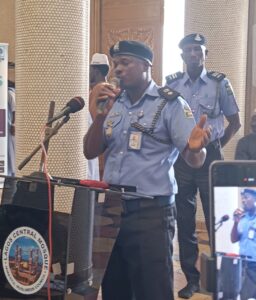
According to him, “The mosque belongs to Allah, but it cannot feed the Imam. If an Imam has a sustainable source of income, even a small business he can support his family and contribute positively to society.”
He lamented that poverty has pushed some Imams into various forms of crime, including ritual killings and fraud. “When we investigate, we find that their involvement is largely driven by hunger and desperation.”
He urged the government and well-meaning individuals to tackle the root causes of clerical poverty, stressing that doing so will help curb crime and strengthen the moral fabric of society. “We must address this holistically if we want a crime-free community,” he concluded.
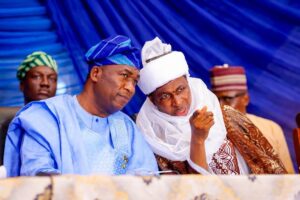
Dr. Sanda sensitises Imams on dangers of silent killer diseases
One of the highlights of the workshop was a health talk delivered by medical expert Dr. Umar Sanda, who raised critical awareness about the dangers of “silent killers”—diseases that progress quietly without noticeable symptoms until significant damage has occurred.
Speaking on the topic “Silent Killers — Awareness, Prevention, and Control”, Dr. Sanda explained that these conditions are responsible for many sudden deaths often described with the phrase, “he was fine yesterday, and gone today.”
He mentioned several examples of such conditions, including high blood pressure, diabetes, certain cancers, kidney disease, hepatitis B and C, heart disease, and glaucoma, saying that they often show little to no early symptoms, making them especially dangerous.
The Grand Chief Imam of Lagos, Sheikh Sulaimon Abou-Nolla, who hosted and convened the event, emphasized that Islam is a religion of peace, service to humanity, and providing solutions to societal challenges.
He urged Imams to rise to their responsibilities, noting that the current state of the nation demands proactive leadership from religious figures.
Sheikh Abou-Nolla also noted that a strong partnership between faith institutions and the government is essential for national progress, peace, and prosperity.
